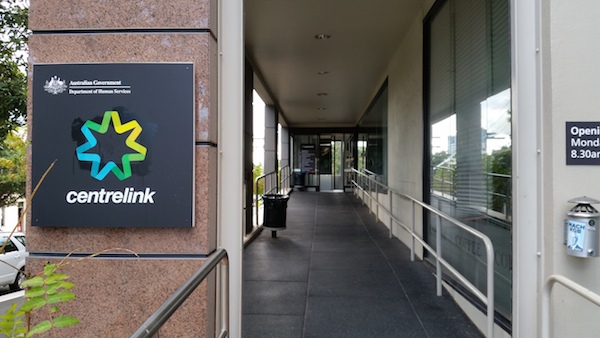The Community and Public Sector Union has responded to revelations that 26 million calls to Centrelink went unanswered in the year to 2014 by calling on the federal government to cease its ‘attacks’ on the public service.
More than half of the public sector is taking, or preparing to take, industrial action and the CPSU said Centrelink’s slow phone service is a symptom of widespread under resourcing.
Of the 57 million people who ‘had a go’ at calling Centrelink, the Australian National Auditor said this week, 13 million “abandoned” the line before reaching an operator.
It’s presumed those 13 million callers gave up because the average wait time is just under 17 minutes, although around a third of callers were forced to wait for around 30 minutes and customers are often left waiting for more than an hour.
Another 13.7 million didn’t enter the Centrelink system at all, because the lines were overloaded.
That’s nearly half of the government agency’s callers that didn’t have their issue resolved.
The National Secretary of the Community and Public Sector Union, Nadine Flood, said that this is a clear indication that if “you cut staff, services will suffer”.
“This is what years of so-called Efficiency Dividends that cut jobs looks like,” Flood said.
“Longer wait times for clients and more stress for the staff who are on the receiving end of frustrated clients waiting longer.”
“These cuts started under the previous Government and Prime Minister Abbott has only made it worse.
“To listen to the Government, you’d think the public service is some sort of huge, bloated bureaucracy on easy street: This report on Centrelink shows that is a million miles away from reality.”

When the federal government handed down its budget last Tuesday, the Finance Minister Mathias Cormann revealed that 17,300 public servants have “left the public service” since September 2013.
A spokesperson for the union told New Matilda that in the Department of Human Services – which takes in Centrelink, Medicare and Child Support – has lost nearly 5,000 full time equivalent roles over the last five years.
During that time, the Australian population has risen by around 6 per cent, or 1.5 million, and call volumes have increased by roughly three million each year, the spokesperson said.
“The maths just doesn’t add up,” Flood said.
“We know that, our members know that, and the Audit Office has finally confirmed that.”
“The department has estimated that to reduce the KPI [key performance indicator]to an average speed of answer of 5 minutes, it would need an additional 1000 staff at a cost of over $100 million each and every year,” according to the auditor’s report.
The figure does not include face-to-face wait times, and the public sector union said that customers’ frustrations are being borne out in increased aggression towards Centrelink workers already under pressure.
“The human impact of these cuts is that Centrelink staff are facing record levels of abuse and violence from customers frustrated at having to wait so long,” Flood said.
According to a statement released by the union, staff reported 6649 incidents across the three Department of Human Services agencies from January to October last year.
Police were called 760 times and 301 cases, such as threatened or actual assaults with weapons, were logged, DHS document reveal.
“It’s unacceptable and it’s high time that the Government and Human Services fund agencies like Centrelink properly to allow staff to do the job to the level the community expects,” Flood said.
The national auditor’s report comes as workers across the broader public sector stage rolling strikes to pressure the Employment Minister Eric Abetz into new enterprise agreements.
Bargaining has been underway since the public sector enterprise agreements lapsed at the end of June last year but the Employment Minister, who has ironically faced industrial action from staff within his own department, is yet to pin down a single agreement.
Despite the deadlock, Abetz has refused to meet with unionists, who argue that the government’s bargaining policy (which sets out the broad terms of what individual departments can offer) doesn’t allow for fair wages and conditions.
“Workers are being asked to cop a massive cut to rights and conditions, in return for low annual pay offers of between 0% and 1% a year that leave real wages going backwards,” Flood said.
“No major private sector employer in Australia is making such nasty offers.
“That’s why they are taking action in numbers not seen in a generation.”
Workers in the Department of Human Services stopped work for one hour and implemented a number of internal work bans on Monday this week to highlight their dissatisfaction with progress on a new deal.
With more than half of the public service taking, or preparing to take, industrial action these ‘rolling strikes’ will continue, the CPSU said.
Donate To New Matilda
New Matilda is a small, independent media outlet. We survive through reader contributions, and never losing a lawsuit. If you got something from this article, giving something back helps us to continue speaking truth to power. Every little bit counts.



